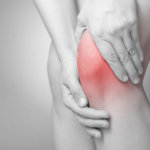
The most easily recognizable early indicators of rheumatism are stiffness and localized or widespread joint pain that lingers for more than just a few days.
The overall wellbeing of a person, including how they feel psychologically and emotionally can contribute to recognizing the early signs, but some of these indicators are specific to certain joints throughout the body. Starting to feel like a robot without any oil is a good way of looking at it, even if humor provides little by way of consolation to the person suffering the symptoms.
When a person’s joints are affected by symptoms like stiffness and pain, rheumatism is more likely to be indicated than when psychological and emotional indicators are presented. These are more subjective early signs that shouldn’t necessarily be discounted but are only really valuable when experienced with more common indicators of rheumatism.
Some of these early signs of the condition are listed below.
1. Fatigue
A long time before any other symptoms or early indicators start to develop, a person with rheumatism may start to feel extremely fatigued. This extreme tiredness and gaping lack of energy or motivation can lead to the person feeling depressed. Everyday activities such as going to work or taking the kids to the park can be hit hard by fatigue, with the person feeling absolutely no ‘get up and go’ spirit, whether they’re usually a couch potato or an ultra-runner.
Rheumatism doesn’t care about your daily activities. Relationships are frequently tested by fatigue, as when one person is not able to hold up their end of the bargain or live up to expectations, tensions mount and communication breaks down. Relationships are about all about giving and taking, rheumatism simply takes all your energy without giving anything back. Unsurprisingly, sex drive is affected by fatigue as well, only serving to exacerbate any negative effects on a relationship.


